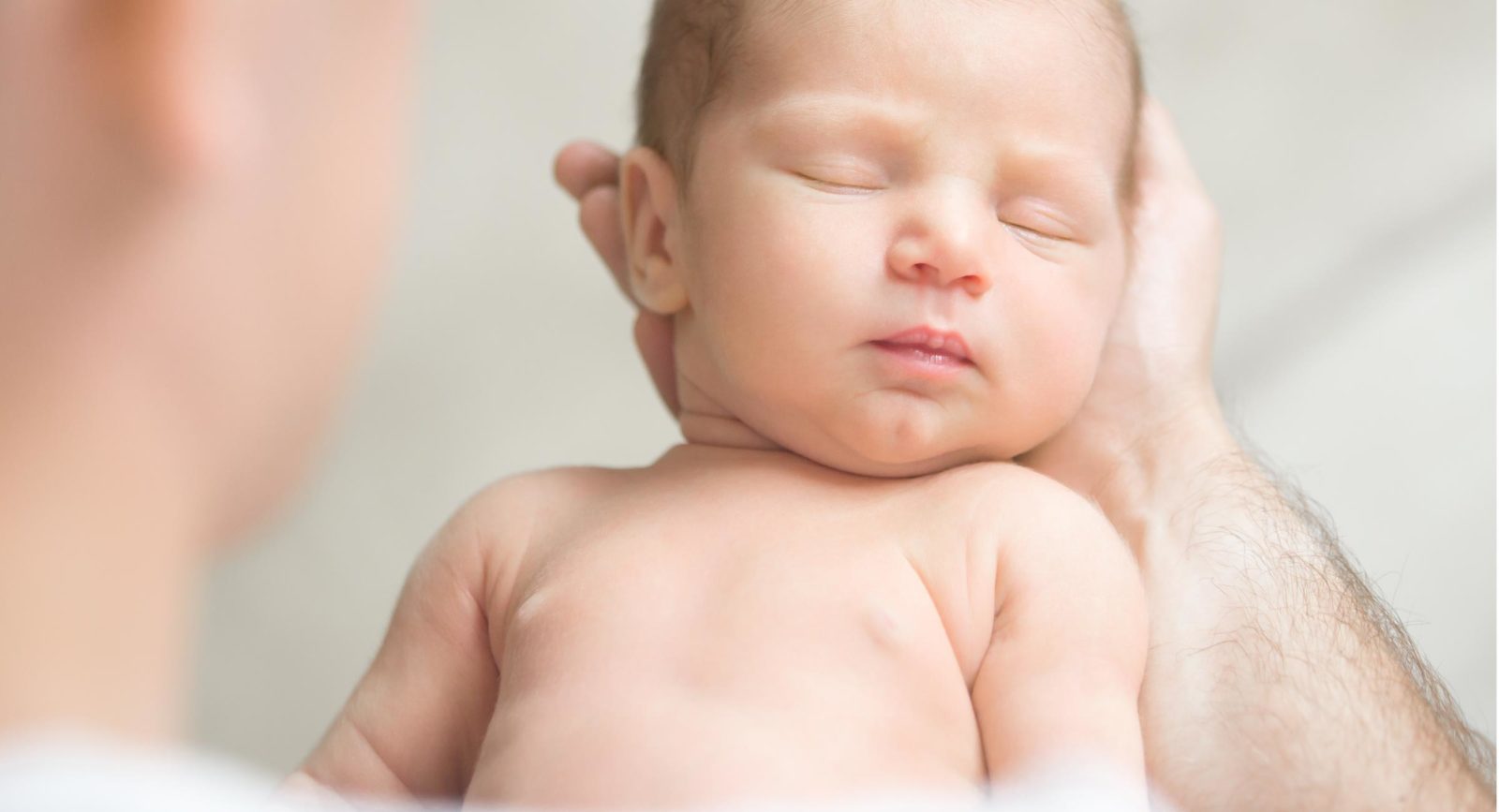
Thuy Mai Luu MDCM MSc FRCP(C)
Director, Canadian Neonatal Follow-Up Network
Pediatrician
I am a general pediatrician and the medical director of CHU Sainte-Justine Neonatal Follow-Up Program in Montreal. I received my MD from McGill University (’01) and a pediatric degree from the University of Montreal (’06). I also trained at Brown University, Providence (Rhode Island, USA) to gain clinical and research knowledge in developmental follow-up of infants born preterm or with neonatal complications. I have a master’s degree in epidemiology and biostatistics from McGill University. I am a senior clinical research scholar from the Quebec Health Research Funds.
My research focuses on long-term neurodevelopmental and physical health outcomes following preterm birth, from infancy to adulthood, looking at risk and resiliency factors along with best screening strategies to enhance clinical follow-up. I have been involved with CNFUN since 2009. I am very proud of all our achievements as a network in partnership with researchers, clinicians across several disciplines, and, most importantly, families.

Anne Synnes MDCM MHSc FRCPC
Founding Director & Past Director, Canadian Neonatal Follow-Up Network
Dr Anne Synnes is a researcher, Clinical Professor and recently retired neonatologist from BC Women’s Hospital in Vancouver, Canada. In addition to her expertise in the care and management of prematurity, she is a leader in neonatal follow-up and outcomes of prematurity, brain injury and neuroimaging, quality improvement, knowledge translation, epidemiology, and family-oriented research. She has been involved in research in Vancouver, nationally and internationally.
Her passion and expertise are improving the outcomes of vulnerable children born sick or preterm. From 1994 to 2010, she was a steering committee member of the Canadian Neonatal NetworkTM and the founding director of the Canadian Neonatal Follow-Up Network.
Her research journey has taken her from documenting the common challenges faced by children born preterm and other at-risk groups, understanding the neuropathology using MRI in longitudinal cohorts, knowledge translation and mobilization, including guidelines for the use of antenatal magnesium sulphate to prevent cerebral palsy, implementing quality improvement projects first in the NICU and recently in neonatal follow-up programs and more recently, working with parents and families of children born preterm to identify the outcomes which are important to them.

Jehier Afifi MD BCh MSc
Co-Director, Canadian Neonatal Follow-Up Network Neonatologist
Dr. Jehier Afifi works as Attending Neonatologist at the IWK Health Centre in Halifax, Nova Scotia and Assistant Professor of Pediatrics at Dalhousie University since 2013. She is the Site Investigator for: the Canadian Neonatal Network (CNN), the Canadian Preterm Birth Network (CPTBN), the Evidence Based Practice for Improving Quality (EPIQ) and the Canadian Perinatal Follow-Up Network (CNFUN). She also served as the Atlantic representative of the CNFUN Steering Committee since 2016.
Dr. Afifi received her medical degree from Ain Shams University Egypt, where she did her postgraduate training in Pediatrics and Neonatology and obtained her Master’s of Science in Pediatrics. She pursued training in the Neonatal Perinatal Medicine at the University of Manitoba. Currently, she is preparing her thesis, for fulfillment of Master’s of Community Health & Epidemiology at Dalhousie University, comparing different prediction models of cerebral palsy in preterm infants.
Dr. Afifi’s research interests include newborn health and development and improving quality of care, mainly focusing on brain imaging and the neurodevelopmental outcome of high-risk infants. Her clinical research is interdisciplinary, collaborating with perinatology, radiology, neurology and pediatric development services and geared both to contribute to the academic literature and to improve the outcome of preterm infants using quality improvement methodology.
Dr. Afifi joined the Nova Scotia Provincial Perinatal Follow up Program since 2013. The program’s database published many population-based researches since its establishment in 1988. Dr. Afifi’s contribution to CNFUN has included reviewing of CNFUN proposals and research project, involvement in Parent-EPIQ, advocating for including CNFUN Site Investigators as coauthors in CNFUN publications and participation in the development of Annual CNFUN reports. Her version is to promote CNFUN academic contribution to literature and knowledge transfer for improving the outcomes of preterm infants and their families. Her goals are to establish future liaison between CNFUN and other international networks and to engage parent support groups and allied health professional’s involvement in CNFUN quality improvement. She also looks to support the representation of the Maritime’s participating Centres, providing input and collaboration for these sites.

Karen Thomas MD FRCPC
Physician Representative (Ontario), Canadian Neonatal Follow-Up Network Steering Committee
Dr. Karen Thomas is an Assistant Professor in the Department of Pediatrics at McMaster University. She received her medical degree at McMaster University, followed by the completion of pediatric training at Queen’s University. She went on to complete fellowship training at the University of Toronto in Neonatal-Perinatal Medicine, followed by a fellowship in Developmental Pediatrics through the University of Toronto and Holland Bloorview Kids Rehabilitation Hospital.
She is a Neonatologist and Developmental Pediatrician in the Division of Neonatology, and is the Director of the Neonatal Follow-Up Clinic at McMaster Children’s Hospital. In this role, Dr. Thomas advocates for infants born preterm and for those with neurological, congenital and genetic differences. Her clinical and academic interests align with a research portfolio that centres around the early identification of neurodevelopmental differences among NICU graduates for early intervention implementation.
She leads several initiatives that aim to improve the functional outcomes of children and is currently involved in the Hammersmith Infant Neurological Examination Implementation Initiative in Neonatal Follow-Up Clinics to contribute to the early identification of cerebral palsy in this population.

Rudaina Banihani MD MHPE
Physician Representative (Ontario), Canadian Neonatal Follow-Up Network Steering Committee
Dr. Banihani is a neonatologist and developmental pediatrician, currently holding an Assistant Professor position at the University of Toronto; she has a dual academic appointment within the Division of Neonatology and Developmental Pediatrics. Her expertise in Neonatal-Perinatal Medicine and Developmental Pediatrics sets her apart as one of few pediatricians in North America with formal training in both of these sub-specialties.
Within her role, she serves as a staff neonatologist in the Neonatal Intensive Care Unit (NICU) and the Director of the Neonatal Follow-Up Clinic (NFUC) at Sunnybrook Health Science Centre in Toronto. Her leadership extends to a dynamic and multidisciplinary team fervently committed to empowering NICU graduates, with a particular focus on extremely preterm infants, to achieve functional milestones and early school success, surpassing the traditional offerings of the NFUC.
Beyond her clinical contributions, Dr. Banihani is a steering committee member within the Canadian Neonatal Follow-Up Network (CNFUN). Here, she plays a prominent role in spearheading the implementation of the Hammersmith Infant Neurological Examination (HINE) in NFUCs, a groundbreaking initiative to improve the early identification of cerebral palsy among infants.
Dr. Banihani’s academic journey is marked by her achievement of a Master’s degree in Health Professions Education from Maastricht University, showcasing her commitment to medical education. Additionally, she has completed research epidemiology training at Harvard Medical School. Her academic interests extend to preterm behavioural phenotypes and Autism Spectrum Disorder, particularly within special populations like preterm infants and individuals with Down syndrome. She has gained widespread recognition in academic and clinical circles as she tirelessly endeavours to enhance functional outcomes for high-risk neonates and children grappling with developmental challenges.

M. Florencia Ricci MD PhD
Physician Representative (Manitoba), Canadian Neonatal Follow-Up Network Steering Committee
Dr. M. Florencia Ricci, MD PhD, is a developmental pediatrician working at the Child Development Clinic at the University of Manitoba Department of Pediatrics and a clinician scientist at the Children’s Hospital Research Institute of Manitoba (CHRIM).
She completed her training in developmental pediatrics and PhD at the University of Alberta before relocating to Manitoba in 2017.
Dr. Ricci is currently the Co-Director of the Manitoba Neonatal Follow-up Program and a Canadian Neonatal Follow-up Program Steering Committee member. She is also a member of the Complex Pediatric Follow-up program, a prairie-based cardiac neurodevelopmental program.
Dr. Ricci’s clinical and research work is dedicated to developing new knowledge and understanding of the impact of prematurity, congenital heart disease and other complex health conditions on children’s neurodevelopment.

Matthew Hicks MD PhD
Physician Representative (Alberta), Canadian Neonatal Follow-Up Network Steering Committee
Matt is a husband, father, Neonatologist, Developmental Pediatrician, and Perinatal Epidemiologist. He is an Associate Professor and the Divisional Director of Neonatal-Perinatal Care at the University of Alberta. He is the Variety, the Children’s Charity and the Stollery Children’s Hospital Foundation Pediatric Clinical Research Professor. His work in Neonatology, Neonatal Follow-up, and Developmental Pediatrics focuses on clinical practice in the NICU and follow-up environments and research on early identification and management of atypical development. He is actively involved in research in Neonatal Acute Clinical Care, Neonatal Follow-up, and Prenatal Exposures and Events and Health Outcomes. His research group is conducting several prospective cohort studies examining pre and post-natal birth and early developmental outcomes predictors. In addition, his work examines the association between reported and measured prenatal exposures, including alcohol and drugs during pregnancy and birth and developmental outcomes.
He currently receives research funding from Alberta Innovates, the Canadian Institutes of Health Research, and the Canada Foundation for Innovation. He is the PI or co-PI of two-stepped wedge cluster randomized control trials implementing interventions in acute care and neonatal follow-up settings. He is passionate about working with teams to provide the best care and evidence for parents and children.

Jill Zwicker PhD OT
Occupational Therapy Representative (British Columbia), Canadian Neonatal Follow-Up Network Steering Committee
Dr. Jill Zwicker is an occupational therapist with a Master’s degree in Educational Psychology (Learning and Development), a PhD in Rehabilitation Sciences, and a postdoctoral fellowship in Developmental Neurosciences. She is currently an Associate Professor in the Department of Occupational Science and Occupational Therapy at the University of British Columbia. She is also an Associate Member in the Department of Pediatrics (Division of Developmental Pediatrics), Investigator at the BC Children’s Hospital Research Institute, Clinician Scientist at Sunny Hill Health Centre at BC Children’s Hospital, Affiliate Investigator with Kids Brain Health Network, and Research Associate with CanChild Centre for Childhood Disability Research. Dr. Zwicker’s research lab is located at BC Children’s Hospital in Vancouver.
Dr. Zwicker’s research is focused on developmental coordination disorder (DCD), a common neurodevelopmental disorder that is highly prevalent in children born preterm. Her CIHR-funded research is examining brain biomarkers and clinical risk factors for DCD in preterm children, evaluating changes in brain structure/function and motor outcomes in children with DCD with rehabilitation intervention, and exploring effectiveness of early intervention for children with DCD. Dr. Zwicker has also established the first research-integrated diagnostic clinic for DCD in Canada and is collecting data related to psychosocial functioning, participation, and quality of life. She has also worked closely with the Neonatal Follow-Up Program at BC Women’s Hospital to examine neurodevelopmental outcomes of preterm infants. Dr. Zwicker is also a co-investigator on a CIHR Pan-Canadian Preterm Birth Network Team Grant (PI – Shah).
Dr. Zwicker is an Editorial Board Member for the Physical and Occupational Therapy in Pediatrics journal and has reviewed for several pediatrics, rehabilitation, and neuroscience journals. She is the Chair of the International Society of Research in Developmental Coordination Disorder and is a member of the Canadian Child Health Clinician Scientist Program Selection Committee and the Kids Brain Health Research Training Committee. Dr. Zwicker has served on the CNFUN Steering Committee since 2016.

Marie-Noëlle Simard
Psychology Representative (Québec), Canadian Neonatal Follow-Up Network Steering Committee
Dr. Marie-Noelle Simard is an occupational therapist, associate professor at the School of Rehabilitation at Université de Montréal, and an independent researcher at CHU Sainte-Justine Research Center. Her expertise is in developmental screening in high-risk populations, more particularly preterm infants. Her current CIHR-funded research program examines different screening modalities, including neonatal biomarkers, along with standardized clinical tests (Amiel-Tison, GMA, NMSDA, ASQ, etc) to optimize early identification of developmental delay. She is also involved as a scientist with the Quebec neonatal follow-up interest group.

Lindsay Colby RN BScN MSN
Nursing Representative (British Columbia), Canadian Neonatal Follow-Up Network Steering Committee
Lindsay Colby is a neonatal nurse with over 20 years of experience in the Neonatal Program at BC Women’s Hospital. She has worked as a point-of-care nurse, discharge-planning coordinator, and research nurse. It is her great privilege to be working with the dedicated and skilled Neonatal Follow-up clinic team as the Supervisor since 2009. She is curious about parents’ experiences and longer-term neurodevelopmental outcomes. She is especially passionate about supporting caregivers’ mental health through the trauma and uncertainty that surrounds having a preterm-born child. Lindsay has worked on family-centred care committees to improve patient care and the collaboration between healthcare givers and families. On the BCWH NICU EPIQ committee, she focused on improving speech, language and early literacy skills in preterm-born infants and children. She has presented at local, national and international conferences and knowledge translation rounds, for example UBC’s Early Years Conference, CANN and COINN. Lindsay graduated from UBC with a Master’s of Nursing in 2018. She was recognized for her final work that explored the outcomes of extremely preterm-born infants at preschool age and won the Outstanding Scholarly Practice Advancement Project Award. In 2022, she received the Dr. Michael Whitfield Award of Excellence in Neonatal Follow-up Care for her leadership and compassionate clinical care. Through her contributions as the nursing representative on the CNFUN Steering Committee, Lindsay is honoured to collaborate with colleagues across Canada to improve the long-term neonatal outcomes for the most at-risk preterm-born children.

